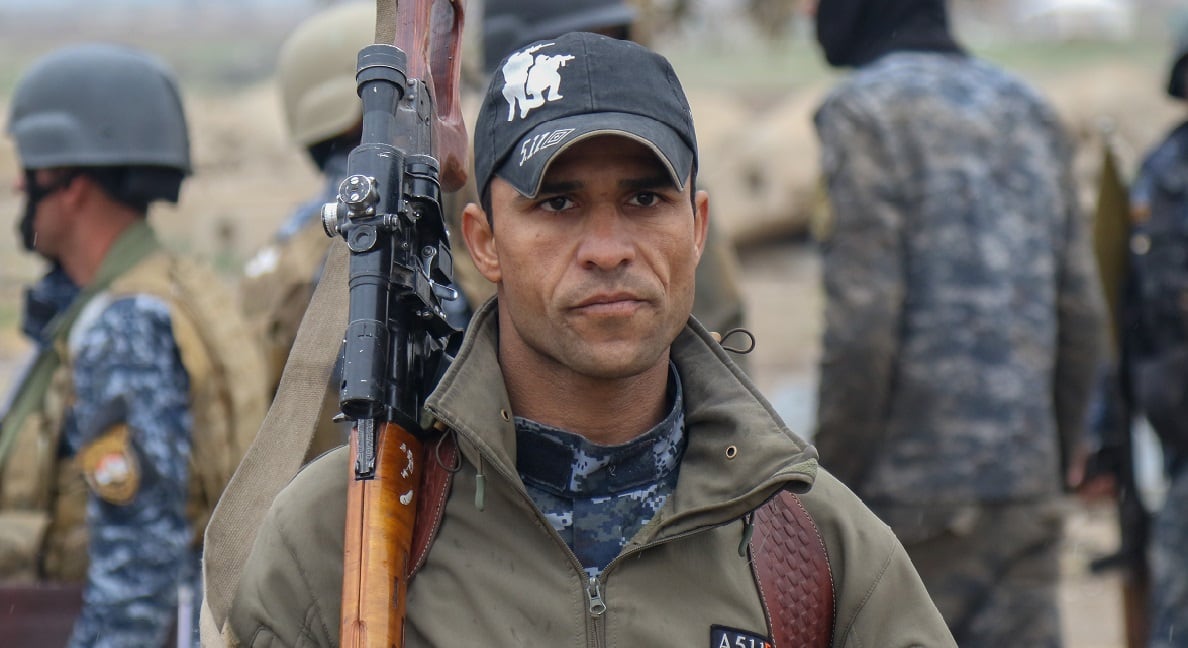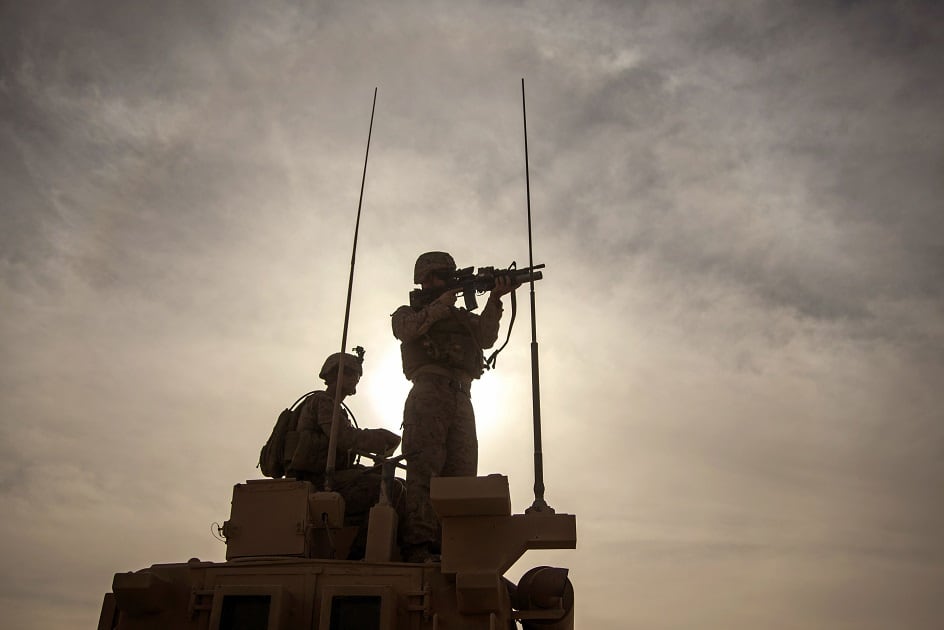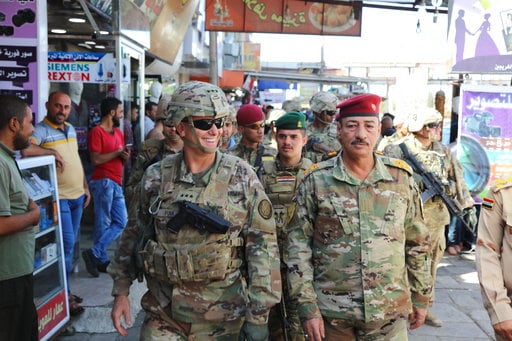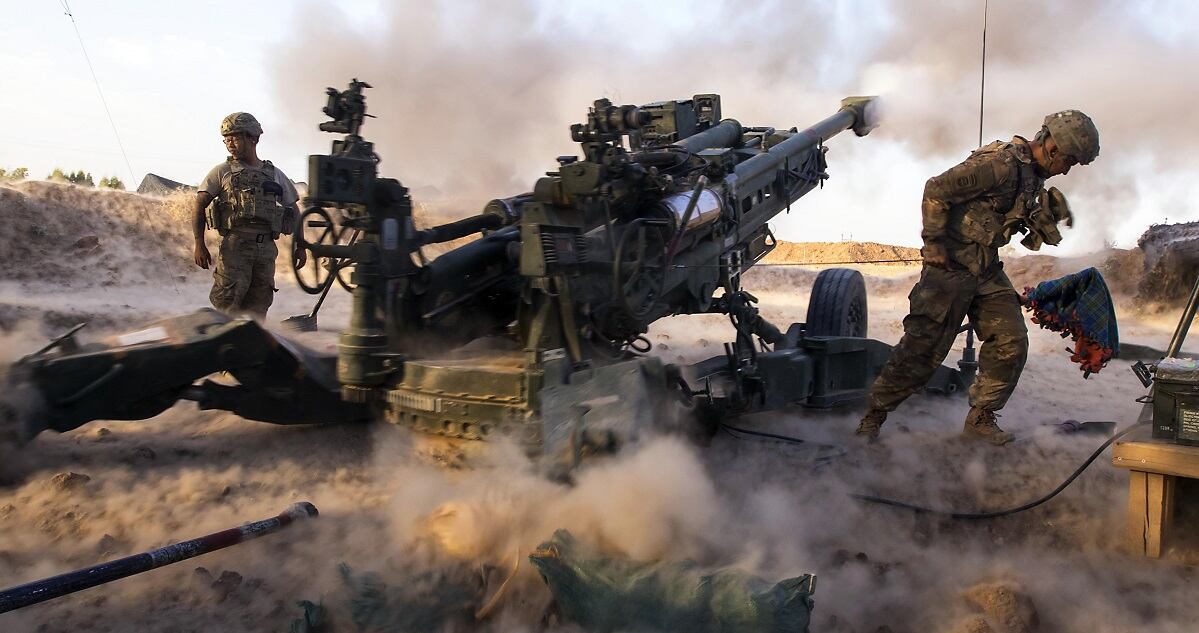July 2018 marks the one-year anniversary of the liberation of Mosul, a battle that tested the resolve of the Iraqi military and the Iraqi people. The road to Mosul was tenuous and fraught with hardship, much like the greater struggle against the Islamic State. There were times when success was questionable.
It was in the initial ISIS offensive toward Baghdad in 2014 that the 1st Infantry Division returned to Iraq, renewing old friendships with Iraqi military leaders we had served with years earlier and brave Iraqi soldiers we had fought with in the early days.
The division capitalized on the heroic efforts by initial entry forces from Third Army and Joint Special Operations Command, led by now-retired Maj. Gen. Dana J.H. Pittard, who had stymied the initial onslaught at the gates of Baghdad.
Our initial operations with the Iraqis had mixed results. In April 2015, the Iraqis experienced their first success with the liberation of Tikrit, tragically followed six weeks later by the loss of Ramadi.
It was truly a dark day, sitting in the Operations Center in the heart of Baghdad, watching a drone feed being broadcast from downtown Ramadi. We watched helplessly as the Iraqi army’s defenses disintegrated in the face of an ISIS force of less than 100 fighters, resulting in the retreat of all the Iraqi army, police, and most government officials from the capital of al Anbar province.
Three years after the departure of U.S. forces, the Iraqi military had progressively lost its fighting edge and the trust of the Iraqi people for a myriad of reasons. Iraqi security forces were hastily thrown in the fire during the ISIS onslaught and suffered a series of defeats that exposed serious flaws in their training and command structure.
Despite overwhelming challenges, the leaders and staff that comprised every rotation of the Combined Joint Task Force–Operation Inherent Resolve coordinated with their Iraqi military counterparts to create an integrated campaign plan, which was periodically updated as conditions changed on the ground, but fundamentally held to the consistent aim of defeating ISIS in Iraq and Syria.
This plan was founded on a “by, with and through” concept that fundamentally altered how we waged war against the enemy in Iraq, enabling the Iraqi government and military to take the lead; and that is what they did.
The Iraqi military quickly coordinated with the Defeat ISIS Coalition for much needed training and equipping, progressively reconsolidating war-weary units, and pragmatically expanding their war-fighting capacity.
Political leaders from all parties worked with religious and community leaders to unify the Iraqi people, putting sectarian and religious differences aside. Iraqi leaders began talking publicly of solidarity with all Iraqi citizens, messages they would only speak in private during our previous deployments.
Deploying again as part of III Corps in the late summer of 2017, Iraqi forces were wrapping up their fight for the city of Mosul, based on the excellent, cooperative planning conducted by the previous CJTF–OIR commanders, Lt. Gen. Sean MacFarland, now retired, and Gen. Stephen Townsend.
The capacity of the Iraqi military had reconstituted substantially since the beginning of this struggle, and we marveled at the force they had amassed for the operation.
Multiple units across the spectrum of Iraqi security forces totaled over 94,000 personnel. The scale and brutality of the urban fight in Mosul has not been seen since World War II.
Despite this seemingly insurmountable challenge, the Iraqis stepped up and, over a one-year period from August 2016 to June 2017, fought room-by-room, floor-by-floor, house-by-house, and block-by-block through a city of over 1 million people.
Years ago the U.S. was involved in operations where the Iraqis were content to let the coalition lead while they idly sat on the sidelines. This is no longer the case.
We observed the planning of operations against ISIS where the coalition was never once asked to support, the Iraqis planned and executed the operations completely and effectively on their own.
The liberation of Mosul broke the back of ISIS in Iraq and gave the Iraqi military and the Iraqi people the confidence to work together and rid their country of this scourge permanently.

This military and social transformation materialized not only in the fight against ISIS but in every facet of civil society. We are beginning to see all aspects of the Iraqi security architecture working closely with the judicial system to ensure citizens’ rights are upheld. Arrests are conducted using warrants and executed by law enforcement organizations that are ethnically and religiously diverse, against suspects wanted for their crimes, not because of their political or sectarian affiliation.
RELATED

For years our Iraqi partners viewed themselves by their tribal, sectarian and religious background first, with few feeling their country was what defined them. We now interact not with Sunnis, Shias or Kurds; but with people who identify themselves as Iraqis first and embody the patriotism associated with that moniker.
Many of us previously held a pessimistic view of Iraq’s future. We no longer hold that position and are optimistic for their collective outlook.
The Iraqi people, for years divided along sectarian lines, endured the crucible of ISIS and exited the fire united with a common, patriotic purpose.
They have rejected external influencers, embraced an inclusive democratic process, and are building substantive relationships with their regional neighbors.
For the first time, many of us are optimistic of their long term success and confident that the Iraqi brothers and sisters we fought next to for so long are heading along the right path.
The U.S. has stood with Iraq through the darkest of times, and we are confident that the relationship we have built will last well into Iraq’s bright future.

Lt. Gen. Paul Funk is commanding general, Combined Joint Task Force–Operation Inherent Resolve, U.S. Central Command; and the commanding general of III Armored Corps and Fort Hood, Texas. The opinions expressed are his own and do not necessarily reflect the views of Military Times or its staff.




